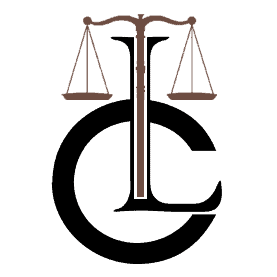The Australian state and territory courts handle a lot of criminal cases each year. For example, they have finalized a total of 486, 422 defendants from 1 July 2019 to 30 June 2020. Although this figure represents a 16% decrease in the number of criminal cases that they have finalized in the previous year, it is still impossible to conclude if the crime rate in Australia is increasing or decreasing. What’s certain is that criminal cases are still giving court magistrates a lot of work.
So, if this trend makes you wonder about the nature of criminal cases and why thousands of these are brought to the Australian courts’ jurisdiction, read further. A brief discussion of the essential facts about criminal cases from an Expert Savannah Defense Lawyer perspective is provided below.
What Is a Criminal Case?
A criminal case is filed before a court due to committing a criminal offence or any activity that constitutes an offence against the state, society, or the public. This also includes all the acts that leave an individual as the immediate victim.
The types of criminal offences in Australia vary from one state to another. However, the following are regarded as criminal offences all over New South Wales (NSW) and will most likely result in the filing of a criminal case when a person or a group commits any of these.
Violent Offences:
As the name suggests, these offences are acts that cause harm or threaten the safety of a person. These include several crimes, such as affray and assault.
A person is charged with affray if they threaten to use or use unlawful violence against another person. For the offence to be qualified as an affray, the act or threat of using violence should be severe enough to cause a firm person to be scared of being harmed or injured by another person. This offence is contained in Crimes Act 1900 (section 93C) and carries a maximum penalty of up to 10 years of imprisonment.
Assault offences are also contained in the Crimes Act of 1900. In NSW, assault offences are divided into two categories: common and aggravated assaults. The offence is committed when a person hurts someone without any lawful purpose or when causing an individual to fear unlawful violence despite the absence of actual physical contact.
Property Offences:
Property offences include larceny and fraud. In other states, larceny, which is known as stealing or theft, is contained in the Crimes Act 1900 (Section 117). Typically, it carries five-year imprisonment as the maximum penalty, except when a local court deals with the matter.
Fraud or fraudulent misappropriation of funds is a property offence contained in the NSW Crimes Act (Section 178A). This is committed when a person collects or receives money and is required to pay the entire amount or a part of it to another person but deceitfully misappropriates the funds. This carries seven years of imprisonment as the maximum penalty.
Drug Offences:
Drug offences in New South Wales are governed by the Drugs Misuse and Trafficking Act 1985. These laws are intended to govern the charging and punishing of a person charged with the use, possession, supply, cultivation, manufacturing and importation of prohibited drugs.
What Are the Differences Between a Criminal Case and a Civil Case?
Criminal and civil cases are very much different. Unfortunately, many Australians are still not aware of this. Most of them think that both of these cases are caused by violating the laws of the land, require the service of lawyers and are brought to courts for resolution. Although these assumptions are true, criminal and civil cases are different in various aspects, especially in the following areas.
Nature:
Criminal cases are filed because a crime is committed. This move seeks the interpretation of criminal law to punish the perpetrators and protect the entire community. On the other hand, civil cases are filed in court to resolve relationships, obligations and agreements between two or more parties.
Penalties and Remedies:
Civil cases are resorted to by parties to undo the harm that the issue, which causes the filing of the case, has caused to the affected party. Typically, these cases involve monetary compensation as the common remedy. However, it can also be in other forms, such as the stoppage or commencement of work, as well as the transfer of property or assets.
By contrast, criminal cases are filed to seek the following legal remedies:
- Punish or remove the offender from the community
- Deter potential offenders
- Protect the community
- Rehabilitate the offender.
Court Representation:
Criminal cases involve hiring the service of criminal defence lawyers. They represent the accused in all legal undertakings. Also, they are expected to be experts in criminal law and should use their legal know-how to ensure that the rights of the accused are not violated. On the other hand, the parties in civil cases are represented by lawyers that specialise in civil laws. They are expected to use their knowledge to help their clients achieve their desired outcomes.
Are Criminal Defence Lawyers Needed in Criminal Cases?
As mentioned, the service of criminal defence lawyers is needed when a person is accused of committing a criminal code, and a criminal case is filed in court. Typically, criminal defence lawyers are in charge of the following roles.
- Test the evidence provided by the police
- Protect the legal rights of their clients
- To place the clients’ version of what happened in the best possible way
- Help the court assess the reliability of the evidence submitted by the police and allow the court to ultimately determine if it is enough to support the allegations against the accused beyond a reasonable doubt.
The Bottom Line
Knowing the essential facts about criminal cases from a criminal defence lawyer’s point of view is very helpful. This allows you to understand the criminal offences and the existing criminal laws of the land. Also, knowing the differences between criminal and civil cases enables you to distinguish which act can constitute a criminal or civil offence. Thus, it is convenient for you to avoid doing them.
 Law Credo
Law Credo






